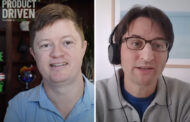Editor’s note: The opinions expressed in this commentary are the author’s alone.
After my first four months as CEO of Connecting For Good, I’m compelled to share a viewpoint on what the Kansas City digital divide looks like.
Knowing the answer to this question is only the first step to tackling digital inclusion efforts, but it’s arguably the most important.
The more we learn about who and how many people are affected, and what initiatives are underway to address the issues, the more we will be able to focus our efforts going forward to deliver greater impact and sustainable outcomes.
Kansas City has proven to be a leader in digital inclusion practice and planning, but there is much work ahead before “enough” is done to bridge the digital divide. It’s a 21st-century problem rooted in age-old diversity and equality issues. And has the potential to be harmful to both the social and economic stability of our community.
“Our city has barely begun to understand and appreciate the enormity of the effort required to scale digital inclusion efforts.”
– Tom Esselman
Last week I had the opportunity to learn what the best and brightest from around the country were working on in this important arena. Kansas City hosted three conferences — the Gigabit City Summit, the Net Inclusion Summit, and the KC Digital Inclusion Coalition Summit — that together explored everything from the importance of public-private partnerships to best practices for monitoring digital inclusion efforts and progress.
During the conferences, representatives from federal agencies, city governments, library systems, technology providers and non-profit organizations dedicated to ‘smart’ digital best practices all converged to share learning and inspiration.
After hearing what conference presenters and attendees had to say, I’ll be the first to acknowledge that our city — while owning a reputation for leadership in this field — has barely begun to understand and appreciate the enormity of the effort required to scale digital inclusion efforts to make a long-lasting impact.
Here are three highlights of what I learned:
1. Public libraries are positioned to be the focal points for digital inclusion efforts.
The accessibility of computer labs, wealth of educational content and training available — at no cost to city residents — make libraries the ideal champions for ‘digital citizenship.’
And Kansas City is especially lucky in this department: the Kansas City Public Library, led by Crosby Kemper and deputy director Carrie Coogan, is looked upon by colleagues around the country as one of the best, most progressive, well-equipped organizations dedicated to digital inclusion in the U.S.
2. We must find ways to measure progress.
“Kansas City is very good at building hype for our digital ‘smart city’ initiatives, and I believe this creates an even bigger challenge for us to follow through.”
– Tom Esselman
My organization works with groups throughout the city to serve residents who want to learn basic computer skills, earn access to vital resources and own their own computers as a pathway to improving their lives. We also partner with volunteers who help teach life and career skills, along with organizations that help to create economic opportunities through funding and job training.
But how do we know if our — and others’ — efforts are actually working and helping for the long term, or just plugging one hole in a leaky bucket that already has five others?
Since the digital divide has only been around since the internet age, finding ways to measure the status quo and subsequent progress has been one of the major stumbling blocks. It’s not just about having internet access. It’s about what constitutes ‘meaningful’ internet access, and what it takes to motivate and educate people about how to harness and use a nearly limitless resource.
One important tool that’s recently entered the playing field on this front is the Community Connectivity Initiative. The Kansas City Public Library — in partnership with the Urban Library Council and the National Telecommunications and Information Administration — is participating in a national working group to refine and promote the program.
The initiative will enable Kansas City to self-assess digital inclusion benchmarks like internet access, adoption and how its use drives outcomes in education, employment, economic impact, and environmental benefits from refurbishing and recycling computer equipment.
3. The spotlight is Kansas City’s best friend.
The willingness of our city to step into the national spotlight is perhaps our greatest strength in addressing digital inclusiveness. We have reached out for help in several very public ways, like applying for the Department of Transportation’s Smart Cities Challenge Grant. We are now a finalist for the $50 million grant.
That final grant submission includes a crucial component to helping Kansas City close the digital divide — a section on social equity and economic inclusion. The section includes proposals for innovative new digitally-enabled transportation solutions to better serve the populations of Kansas City in underserved low and moderate income areas.
It has become evident to me in a short time in this role that Kansas City is very good at building hype and attracting attention for our digital ‘smart city’ initiatives, and I believe this creates an even bigger challenge for us to follow through consistently with collaborative actions that truly make a sustainable difference.
While much work lies ahead, I am optimistic that our national leadership position, combined with our focus on partnership and impact outcomes for the long term, will drive Kansas City to be a more inclusive and digitally equitable place to live and work in the future.
Tom Esselman is CEO of Connecting for Good, an organization dedicated to closing Kansas City’s digital divide and improving the lives of underserved populations with programs focused on education, employment, economic impact and the environment. Follow Esselman and Connecting for Good on Twitter @TomEsselman and @connectingkc.





































